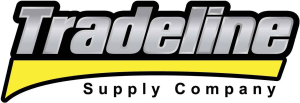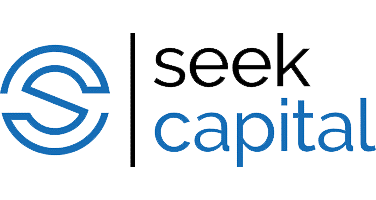What Do You Need a Loan For?
Existing business owners with sales over $200K a year pick a loan purpose below for instant online quotes. Startups scroll down for even more lenders and funding options to pick from.
Business Sales Over $15K and Fico 500+? Start Here! Otherwise Keep Scrolling 👇
If you have over $15,000 in monthly sales you can get a loan based off your business sales typically a minimum credit score of 500 is needed and a business bank account. Loans can be approved in minutes and funded same day. Those with under $15K in sales and startups keep scrolling for more options.
| Lender | Best for | Max Loan Amount |
Min Credit Score |
Apply If |
|---|---|---|---|---|

|
Lines of Credit & Term Loans
A+ Rating with BBB Over $15 Billion Provided to Small Businesses |
$250,000 | 625 | The Business Owners Credit is Over 625
You’re Looking for a Business Line of Credit Seek a Fast Easy Application Process |

|
Term Loans With Fixed Rates
200,000+ Businesses Funded Direct Lender, Cut Out Middlemen |
$2,500,000 | 600 | Your Business Sales are Over $15K/Month
You Need Cash ASAP Have 3 Months of Business Bank Statements |

|
17+ Years in Business
Multiple Funding Options 4.8 Stars on Google With Over 352 Reviews |
$1,000,000+ | 500 | Generates at least $20,000 in Monthly Sales
Has a Business Bank Account Personal Credit is 500+ |

|
Startup, Real Estate and Small Business Loans
4.9 out of 5 stars on google with over 500 reviews Fair Funding Options For Your Business |
$500,000 | 620 | Your Business is a Startup
And SBA loan, or Equipment Loan Is What You Need |
Consider a Personal Loan If Your Credit Score is 640+ (If Not Keep Scrolling) 👇
Sometimes using your good credit or existing assets is a good way to get liquid capital to fund your business or help get your start up off the ground. Personal loans for business can be a great way to fill the gap or increase cash flow to fund expansion.
| Lender | Best for | Max Loan Amount |
Min Credit Score |
APR Range |
|---|---|---|---|---|

|
Best for Those With Limited Monthly Sales
Credit over 680 Required Get up to $50,000 at 0% For Up To 1 Year |
Max Loan Amount: $500,000 | Minimum Credit: 680 | APR Range: 0%-29.99% |

|
Credit Under 680 Accepted
Access Over 100 Lenders With 1 Application Fast Approvals and Funding |
Max Loan Amount: $75,000 | Minimum Credit: 570 | APR Range: Prime + |

|
– Those getting credit for the first time – Those with less than stellar credit scores |
Max Loan Amount: $1000 | Minimum Credit: Most scores approved | APR Range: – You’ve been turned down by others – You have limited credit history. – Your credit is not good |

|
Good Credit | Max Loan Amount: $40,000 | Minimum Credit: 650 | APR Range :
Starting at 7.99% |

|
Good for those with less than stellar credit | Max Loan Amount: $50,000 | Minimum Credit: 600 | APR Range:
Starting at 7.8% |

|
Good Credit | Max Loan Amount: $100,000 | Minimum Credit: 680 | APR Range:
As Low As 7.49% |
Boost Your Credit Score and Get Better Loan Offers at Lower Rates
Did you know According to bankrate someone with a score of 620 could expect to pay a median interest rate of 30% on a personal loan while someone with a score of 695 would pay 14.5%. a 70 point difference can cost you a lot of money. On a $25,000 loan over 5 years it would be an extra $13,238 in interest for the same loan.
Take these steps right now for an instant credit score boost.
| Signup at: | Why? | Cost | Possible Effects |
|---|---|---|---|

|
Do you pay an electric, gas or cable bill? Use your credit history to boost your score. |
Free | Boost score 20-30 PTS |

|
Buy a tradeline and use someone elses good credit to boost yours | $50-$500 | Boost Score 40-100 PTS |

|
Know your credit scores. Check for errors | Free | Verify Accuracy of Score |

|
Check all 3 credit reports and fix any errors | Free for 30 days | Fix Inaccurate Reportings |
Gigworkers Use These Apps and Websites to Get Cash ASAP While You Wait For Payout.
For those who are independent contractors or not paid via W2 you know all to well how hard it is to get a loan. Banks want to see W2 earnings or they deny you. We rounded up some of the best small business lenders for gig workers and listed them below. Most have instant online decision processes. Feel free to register with a few so you have all the best ones to work with.
| Lender | Best for | Max Loan Amount |
Min Credit Score |
Apply if |
|---|---|---|---|---|

|
Best for
Uber Drivers, Door Dash or Any Other Gig Type Worker |
Max Loan Amount $10,000 |
Credit Score Doesn’t Matter | Apply if:
You’re a gig worker or 1099 based worker. Most banks will not lend to non-W2 but Fundo is built for the independent contractor. Easy application process Quick Funding |

|
Up to $5000 in days | $5,000 | Giggle does not have any credit requirements, instead they analyze your bank statements and base their offer from there. | |

|
Money in a few days
Those with Better Credit |
$5,000 | has worked with over 200,000 freelancers |
Use Your Home Equity To Fund Your Business
New program can access your home equity without having to sell, stress, or borrow.
What if you could start achieving your business goals today while staying in the home you love? Get up to $600,000 in as little as 3 weeks1 to use however you’d like. No monthly payments, no debt.
Click here to see if your home is eligible for up to $600K with no monthly payments through Hometap
Borrowing from the equity in your home or your 401K plan could be a move that pays off big for the funding of your business. Match with a lender below who can help you tap the equity in your home to use on your business.
Home Owner Options
Are you looking for a loan to start, grow or run your business? From startup to established business we have every option a business owner can think of when it comes to funding their small business, through business loans, lines of credit, SBA, crowdfunding, capital raises and more.
| Lender | Best for | Max loan amount |
Credit Requirements |
Terms |
|---|---|---|---|---|

|
Use Your Home Equity As Rates Go Down | Based on home Value | 680 | Up to 30 years monthly payments |

|
Homeowners With Equity in Their Home
Get Funds in 30 Days Startups Who Need Capital Without Paying it Back |
$600,000 | 500 | No Payment for 10 Years |

|
Use your home equity at lower interest rates | $400,000 | 620 | Up to 15 Years |

|
Fast Online Eligibility Approvals | $500,000 | 680 | 5, 10 or 30 years |
Here’s our list of ways to find funding for your small business loan needs.
1. Personal Savings: Using Your Own Funds for Small Business Loans
- • Benefits: No interest payments, no need to give up equity, and full control over your business. It’s an easy and fast way to fund your business without involving third parties.
- • What It Is: Personal savings are often the first step for entrepreneurs who want to avoid taking on debt or giving up equity in their business. This option allows you to use your accumulated savings as a small business loan to cover startup or operational costs.
- • Challenges: The biggest risk is the personal financial impact if the business fails. Using your savings may lead to depletion of funds for personal emergencies or retirement plans.
- • Best For: Small businesses with low startup costs, entrepreneurs with significant savings, or those unwilling to take on external debt or investors.
2. Take out a Personal Loan
You can take a personal loan to start a business, and it’s a common option for entrepreneurs who may not yet qualify for business loans or prefer not to give up equity in their startup. Personal loans can provide quick access to capital, but they come with both advantages and disadvantages. Below are the pros and cons of using a personal loan to start a business, as well as some of the best websites to apply for such loans.
Pros of Taking a Personal Loan to Start a Business:
- 1. Quick Access to Funds:
- • Personal loans are typically faster to secure than business loans, especially if you have good credit. The approval process can be done in a matter of days.
- 2. No Collateral Required (Unsecured Loans):
- • Many personal loans are unsecured, meaning you don’t have to put up assets like property or equipment as collateral. This reduces risk if your business fails.
- 3. Lower Interest Rates (for Good Credit):
- • If you have a strong credit score, you can secure a personal loan with a relatively low-interest rate compared to other forms of borrowing (such as credit cards).
- 4. No Impact on Business Credit:
- • Since the loan is in your personal name, it doesn’t affect your business’s credit (though it could impact your personal credit).
- 5. Flexibility:
- • Personal loans generally come with fewer restrictions on how the money can be used, giving you more flexibility in spending the funds on various aspects of your business.
Cons of Taking a Personal Loan to Start a Business:
- 1. Risk to Personal Assets:
- • If you default on the loan, your personal assets, like your home or car, could be at risk if the loan is secured. Even unsecured loans can damage your credit score if you fail to repay.
- 2. Personal Liability:
- • As the loan is in your name, you are personally responsible for repaying it. If your business fails, you’ll still need to make the loan payments, which could put a strain on your personal finances.
- 3. Limits on Loan Amount:
- • Personal loans may have lower maximum loan limits compared to business loans. This can be a drawback if you need a larger sum to fund your startup.
- 4. Impact on Personal Credit Score:
- • Taking out a personal loan and carrying debt can affect your personal credit score. If your business struggles and you miss payments, it could harm your creditworthiness.
- 5. Higher Rates for Lower Credit Scores:
- • If you have a less-than-perfect credit history, you might face higher interest rates, making the loan more expensive in the long run.
Key Considerations:
Before applying for a personal loan, make sure:
- • You fully understand the interest rates, terms, and fees associated with the loan.
- • You have a clear plan for using the loan funds and a strategy for paying it back.
- • You are confident in your ability to manage personal debt alongside your business startup efforts.
Taking a personal loan for starting a business can be a viable option if you are prepared to manage the financial responsibility. However, it’s crucial to weigh the potential risks and make sure you’re comfortable with your ability to repay the loan, especially if your business faces challenges in its early stages.
3. Funding from Family and Friends: A Personal Approach to Small Business Loans
- • What It Is: Many entrepreneurs turn to family and friends for small business loans, borrowing funds from their close circle of contacts. These loans are often informal, without the structure of traditional financing options and sometimes offer equity in exchange.
- • Benefits: No formal application process and the possibility of interest-free loans or flexible repayment terms. It’s often quicker than applying for a small business loan through a bank.
- • Challenges: Mixing personal relationships with business can lead to misunderstandings or conflict, especially if the business doesn’t succeed. Additionally, there may be unspoken expectations or pressures.
- • Best For: Entrepreneurs who have a trustworthy and supportive network and need a smaller loan to get started.
Click Here for a free agreement on how to properly set up an agreement for a round of funding with family and friends.
4. Bank Loans: The Traditional Route for Small Business Loans
- • What It Is: Traditional bank loans are one of the most common ways to obtain small business loans. These loans typically involve borrowing a lump sum of money from a bank, which is then repaid with interest over a set term.
- • Benefits: Bank loans often offer larger amounts of funding compared to other types of small business loans, making them ideal for established businesses looking to expand. Interest rates are generally lower than credit card financing, and terms are clearly defined.
- • Challenges: Bank loans can be difficult to qualify for, particularly for new businesses or those with limited credit history. Banks also typically require collateral and a solid business plan to approve small business loans.
- • Best For: Established businesses with a good credit history that need a larger sum of money for growth, equipment, or working capital.
5. Microloans: Small Business Loans for Entrepreneurs with Limited Access to Credit
-
- • What It Is: Microloans are small loans, typically under $50,000, offered by nonprofit organizations, government programs, or specialized lenders. These loans are designed for small businesses or entrepreneurs who may not have access to traditional forms of credit.
- • Benefits: Easier to qualify for than conventional bank loans, microloans are ideal for new businesses or those without a strong credit history. They also offer flexible repayment terms and relatively low-interest rates.
- • Challenges: While they are easier to obtain, the loan amounts are usually smaller, which may not be sufficient for businesses with more substantial financing needs.
- • Best For: Entrepreneurs with limited credit history or small businesses in need of a smaller loan amount to cover initial costs.
Here is a list of micro funding websites to apply on
In the meantime, I can suggest some well-known platforms that typically offer microloans for small businesses:
- 1. Kiva – Offers low-interest loans funded by individual lenders to entrepreneurs in many countries.
- 2. Accion – Provides microloans to small business owners with a focus on underserved communities.
- 3. Grameen America – Provides microloans to low-income women entrepreneurs in the U.S.
- 4. OnDeck – Offers small business loans and lines of credit, focusing on quick application processes.
- 5. BlueVine – Known for offering small business lines of credit and invoice factoring, with flexible terms.
- 6. MeridianLink – A platform providing funding to veterans and other small businesses through small loans and lines of credit.
6. Credit Cards: A Short-Term Solution for Small Business Loans
- • What It Is: Using credit cards for business expenses can be a quick way to access capital, acting as a short-term small business loan. Many business owners rely on credit cards to cover day-to-day expenses or urgent costs.
- • Benefits: Fast access to funds, ease of use, and flexibility in how the money is spent. Many credit cards also offer rewards, such as cashback or travel points, which can be beneficial for business owners.
- • Challenges: Credit cards have high-interest rates compared to traditional small business loans, making them an expensive way to borrow money if balances aren’t paid off quickly. Accumulating debt can negatively impact both personal and business credit scores.
- • Best For: Small businesses that need quick access to funds for short-term purchases or emergencies.
For a complete list of credit cards broken out by credit requirements,
rewards and more click here to visit creditcards.com the internet’s top resources for all your credit card application needs.
7. Angel Investors: Equity Funding vs. Small Business Loans
- • What It Is: Angel investors provide capital to early-stage businesses in exchange for equity, often in the form of shares or convertible debt. This is an alternative to traditional small business loans, particularly for businesses with high growth potential.
- • Benefits: Angel investors often bring more than just money—they offer mentorship, expertise, and valuable industry connections that can help scale your business. There’s no need to repay the loan since the investment is equity-based.
- • Challenges: Angel investors will require a percentage of ownership in your company, and they may become actively involved in the decision-making process. This could lead to a loss of control in the business.
- • Best For: High-growth startups that are looking for more than just funding and are willing to give up equity in exchange for capital and guidance.
Click Here for a free agreement on how to properly set up an agreement for a round of funding with angel investors.
8. Venture Capital (VC): A High-Risk, High-Reward Alternative to Small Business Loans
- • What It Is: Venture capital is a form of private equity financing where investors provide funding to early-stage businesses with high growth potential in exchange for equity stakes. Unlike small business loans, VC investments are often larger and come with expectations for rapid growth and a return on investment.
- • Benefits: Venture capital firms provide substantial funding, along with business advice, strategic guidance, and networking opportunities to help scale your business.
- • Challenges: VCs typically require significant equity ownership and influence over business decisions. Additionally, they expect a high rate of return on their investment, and if the business doesn’t perform well, they may push for an exit strategy.
- • Best For: High-growth businesses looking for large amounts of capital and willing to give up ownership and control in exchange for funding.
Here are some tips when negotiating equity for money with outside investors.
When working with angel investors, it’s crucial to approach the situation strategically to ensure that you secure the best deal for your business while maintaining the flexibility and control you need to grow. Here are some key things to know and consider:
1. Understand the Angel Investor’s Expectations
- • Return on Investment (ROI): Angel investors typically seek high returns, often looking for a 10x return on their investment over 5 to 7 years. Make sure your business model can show this potential.
- • Exit Strategy: Investors will be interested in how they will eventually get their money back, usually through acquisition or an IPO. Be clear on your potential exit strategies and how they align with the investor’s goals.
2. Valuation of Your Business
- • Don’t Overvalue: Overestimating your business’s worth can scare off investors or result in unrealistic expectations. Ensure your valuation is reasonable and based on clear financials and market potential.
- • Equity Dilution: Be prepared to offer equity in exchange for funding, but also ensure you don’t give up too much ownership early on. Giving away too much equity can limit your control and potential future earnings.
3. Prepare a Strong Business Plan and Pitch
- • Clear Vision and Plan: Angel investors need to understand how your business will grow and how they will make their money back. A solid business plan should include financial projections, target market, competition, growth strategies, and more.
- • Unique Selling Proposition (USP): Clearly communicate what differentiates your business from competitors and why it’s poised for success.
4. Negotiating Terms
- • Equity vs. Debt: You may be offered equity (ownership in your company) or debt (a loan). Equity is more common with angel investors, but it’s important to be clear on how much control you’re willing to give up.
- • Convertible Notes: Some angel investors use convertible notes, which are a type of short-term debt that converts into equity at a later financing round. Understand the terms and how they affect your future ownership.
5. Understand the Terms of the Deal
- • Term Sheet: This outlines the key terms and conditions of the investment deal. Pay close attention to the following:
- • Valuation cap: The maximum valuation at which your convertible note will convert to equity.
- • Discount rate: The percentage discount the investor will receive when converting their note into equity.
- • Control and Decision-Making: Investors may want a say in major company decisions, so it’s important to clarify how much control you’re willing to give.
- • Liquidation Preference: In case of a business sale or liquidation, investors may get paid back before you. Know the terms around this.
6. Building a Relationship
- • Choose the Right Investor: Beyond money, angel investors can bring invaluable expertise, mentorship, and networking opportunities. Choose an investor who is aligned with your business goals and who has experience in your industry.
- • Communication: Keep your investors in the loop with regular updates on business progress. Transparent communication builds trust and can help you in case you need additional support down the line.
7. Post-Investment Involvement
- • Level of Involvement: Some angel investors prefer a hands-on role, while others take a more passive approach. Discuss how much involvement they expect in your company’s operations and strategic decisions.
- • Board Seats and Control: Be mindful of who will be sitting on your board. Having investors with a say in the business can be beneficial, but too much influence could limit your decision-making ability.
8. Know Your Rights
- • Legal Protection: Consult with a lawyer to review the terms of any deal before you sign anything. Ensure that the terms are fair and that you understand the legal implications.
- • Exit Clauses: Understand the exit options available to both you and the investor. An ideal deal allows you to exit on your terms, whether through a sale, acquisition, or IPO.
9. Don’t Rush the Process
- • Due Diligence: Don’t be in a hurry to secure funding. Take the time to ensure that the investor’s goals align with yours and that the deal terms are favorable for your business long-term.
- • Negotiation Flexibility: Be open to negotiations, but also know your bottom line. Don’t settle for less than what is fair or what will help your business succeed.
By carefully preparing and ensuring you have a strong, realistic business plan, you’ll be in a better position to negotiate a deal that benefits both you and the angel investor. Always remember that the goal is to maintain control over your business while leveraging the expertise and funding the investor can offer to help it grow.
9. Crowdfunding: Raising Funds for Your Small Business Without Traditional Loans
- • What It Is: Crowdfunding allows small businesses to raise money from a large number of people, typically via online platforms like Kickstarter, Indiegogo, or GoFundMe. It’s an alternative to traditional small business loans and can also generate buzz for your business or product.
- • Benefits: Crowdfunding can provide capital without giving up equity, and backers may also become future customers or brand advocates. For reward-based crowdfunding, you only need to repay backers with the promised rewards rather than cash.
- • Challenges: Crowdfunding campaigns require significant marketing effort to attract backers. Success is not guaranteed, and if you don’t meet your funding goal, you may receive no funds at all.
- • Best For: Entrepreneurs with innovative ideas, products, or services who want to raise funds and build a customer base before launching.
Here are five of the top crowdfunding platforms that are popular for small businesses seeking funding:
1. Kickstarter
- • Focus: Creative projects, innovative products, and entrepreneurial ventures.
- • How it works: Kickstarter operates on an all-or-nothing model, meaning you only receive funding if you reach your goal. It’s widely used for product-based startups, particularly those in tech, design, and entertainment.
- • Best for: Product-based startups, creative ventures, and early-stage businesses.
- • Website: kickstarter.com
2. Indiegogo
- • Focus: Tech innovations, creative projects, and entrepreneurial ventures.
- • How it works: Indiegogo offers both all-or-nothing and flexible funding options, allowing you to keep the funds even if you don’t meet your goal. It’s great for businesses with flexible timelines and unique products.
- • Best for: Entrepreneurs with innovative products or social impact ideas.
- • Website: indiegogo.com
3. GoFundMe
- • Focus: Personal causes, small businesses, and charitable causes.
- • How it works: GoFundMe is donation-based, where backers don’t receive equity or rewards, but simply support the cause. There’s no set time limit or goal requirement, making it a more flexible option.
- • Best for: Community-driven businesses, urgent funding needs, or charitable small businesses.
- • Website: gofundme.com
4. Crowdfunder
- • Focus: Equity crowdfunding for small businesses and startups.
- • How it works: Crowdfunder enables businesses to raise capital by offering equity in exchange for funding. This is ideal for startups seeking investors who want an ownership stake in the company.
- • Best for: Small businesses looking for investors willing to take an equity share.
- • Website: crowdfunder.com
5. SeedInvest
- • Focus: Equity crowdfunding for startups.
- • How it works: SeedInvest connects businesses with accredited investors in exchange for equity funding. Businesses must go through a vetting process to be listed on the platform, making it more selective.
- • Best for: Startups that meet investor criteria and are ready for equity funding.
- • Website: seedinvest.com
10. Grants: Free Funding for Your Business
-
- • What It Is: Business grants are funds provided by governments, nonprofits, or private organizations that do not need to be repaid. They’re typically awarded to businesses working on specific projects or innovations, and they can be an excellent alternative to taking on small business loans.
- • Benefits: Unlike loans, grants don’t require repayment, so they won’t add to your debt burden. They are ideal for businesses focused on research, social impact, or innovation.
- • Challenges: Grants are highly competitive, and the application process can be time-consuming. Additionally, there may be restrictions on how the grant funds can be used, limiting your business flexibility.
- • Best For: Startups or businesses in specific industries (such as technology or education) that align with grant funders’ objectives.
11. Peer-to-Peer (P2P) Lending: A Digital Alternative to Traditional Small Business Loans
-
-
- • What It Is: Peer-to-peer lending platforms connect businesses seeking loans with individuals who are willing to lend money. Unlike traditional small business loans from banks, P2P lending offers a more accessible way to borrow funds, with lower interest rates in some cases.
- • Benefits: P2P lending provides quicker approval times and typically has fewer requirements than traditional loans. It’s also a more flexible option than traditional banks.
- • Challenges: Borrowing through P2P lending can still come with interest rates and repayment terms that might be higher than those of government-backed loans. Late payments can affect your credit score.
- • Best For: Small business owners who want quick access to funding and are comfortable with the terms and rates offered by P2P lending platforms.
-
Here are three of the top peer-to-peer (P2P) lending platforms that are commonly used for small business loans and personal lending:
1. Funding Circle
-
-
- • Focus: Small business loans.
- • How it works: Funding Circle connects small businesses with individual investors who fund loans in exchange for interest. It’s one of the largest and most well-known P2P lending platforms specifically for small businesses.
- • Best for: Established small businesses looking for quick access to capital, often with better rates than traditional banks.
- • Website: fundingcircle.com
-
2. LendingClub
-
-
- • Focus: Personal loans and small business loans.
- • How it works: LendingClub offers both personal and business loans, where investors fund loans directly to borrowers. For small businesses, LendingClub offers lines of credit and term loans.
- • Best for: Small businesses with strong credit looking for flexible loan options and personal borrowers seeking debt consolidation.
- • Website: lendingclub.com
-
3. Prosper
-
-
- • Focus: Personal loans and small business loans.
- • How it works: Prosper is a P2P lending platform that offers personal loans, including those used for business purposes. Small businesses can apply for loans, which are funded by individual investors, and have more flexibility compared to traditional financing.
- • Best for: Personal borrowers and small business owners seeking loans for expansion or debt refinancing.
- • Website: prosper.com
-
These platforms allow businesses to secure funding directly from investors, often with more flexibility and better terms than traditional banks. Be sure to evaluate loan terms, rates, and eligibility requirements before applying.
12. Invoice Financing: Turning Receivables Into Working Capital
-
-
- • What It Is: Invoice financing is a way for businesses to borrow money against their outstanding invoices, turning accounts receivable into immediate working capital. It’s a flexible financing solution, especially for businesses with long payment cycles.
- • Benefits: Immediate access to cash, without needing to take on a traditional loan. Invoice financing doesn’t require you to give up equity in your business.
- • Challenges: Invoice financing fees can be high, and the lender takes a portion of the invoice value. If clients fail to pay, your business might still be responsible for repaying the loan.
- • Best For: Small businesses with outstanding invoices that need immediate cash flow.
-
13. Supplier Credit: Extending Payment Terms for Small Business Cash Flow
-
-
- • What It Is: Supplier credit allows businesses to purchase goods or services from suppliers with extended payment terms, providing a form of short-term financing.
- • Benefits: Supplier credit allows you to manage your business’s cash flow by delaying payment for inventory or supplies. This can give you more flexibility compared to taking out a traditional small business loan.
- • Challenges: Relying on supplier credit may result in strained supplier relationships or higher prices. Failure to pay on time can harm your business reputation.
- • Best For: Businesses looking for short-term financing to manage inventory or other operational costs.
-
14. Equity Financing: Selling Ownership in Your Business
- • What It Is: Equity financing involves selling a percentage of your business to investors in exchange for capital. Unlike small business loans, this doesn’t involve taking on debt, but it does mean giving up ownership.
- • Benefits: No repayment schedule, and investors often bring expertise and resources to help your business grow.
- • Challenges: Giving up equity means you’ll have less control over your business. Investors might have a say in business decisions, which can complicate your management process.
- • Best For: High-growth businesses that need large amounts of capital and are willing to share ownership.
15. Revenue-Based Financing: Flexible Payments Based on Business Performance
- • What It Is: Revenue-based financing allows businesses to obtain funding in exchange for a percentage of future revenue until the loan is repaid. This is an alternative to traditional small business loans, particularly for businesses with fluctuating income.
- • Benefits: Flexible repayments based on your business’s revenue performance make this an attractive option for businesses with seasonal income.
- • Challenges: The total repayment amount can exceed that of a traditional loan if business performance is strong.
- • Best For: Small businesses with fluctuating or unpredictable revenue streams looking for flexible funding.
16. Partnerships: Sharing Risks and Rewards in Your Business
- • What It Is: Partnerships involve collaborating with other businesses or individuals to share resources, including funding. This can serve as an alternative to traditional small business loans, especially when pooling resources is more effective.
- • Benefits: Shared risk, access to additional resources, and the ability to expand your business without relying solely on loans.
- • Challenges: Dividing ownership and decision-making power can lead to disagreements or conflicts. Profit-sharing can also reduce your earnings.
- • Best For: Small business owners looking for growth opportunities through collaboration without taking on traditional debt.



 Pros
Pros
 Cons
Cons
 Funding Options
Funding Options








